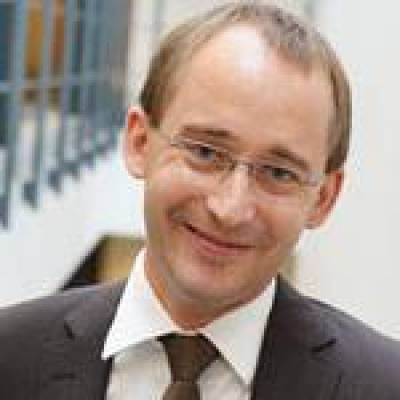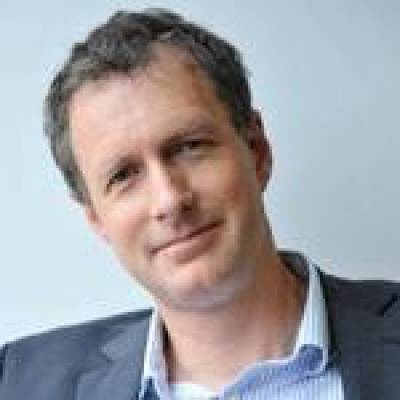 |
Steven BishopProfessor of Non-Linear Dynamics, University College London Twitter: @StevenBishopUCL I joined University College London (UCL) in 1984 and since 2004, I have been in the Mathematics Department as Professor of Nonlinear Dynamics specialising in complex systems. My earlier research interests spanned a broad variety of topics motivated mainly by problems in engineering dynamics. Identifying instabilities in nonlinear dynamical systems formed a running theme with particular emphasis on parametrically excited systems and the interesting phenomena found in non-smooth systems, such as those involving repeated impacts. Previous research areas have included the control of chaos and chaotic synchronisation but additionally the concepts of nonlinear dynamics have been applied to study ship capsize, the spread of fires in rooms, the stability of electronic phase-locked loops and other physical problems of practical interest. More recently, after studying a discrete approach to consider the dynamics and morphology of sand dunes, my research has moved more towards social systems where I apply theoretical and computations methods. I have a specific interest in how we can use a systems approach to understanding how local and global influences can be incorporated into simple models that can be used in a policy decision making setting. |
 |
Daniele BarchiesiResearch Associate in Data Science, University College London Twitter: @danielebarch I obtained a MSc by research and a PhD from the Centre for Digital Music at Queen Mary University of London, where I have worked on research in the areas of audio engineering, machine learning, signal processing and reproducible research. Since joining University College London in January 2014 as a research associate with the project "Big Data, Innovations and New Business Models", I have been working on analysing social networks and web platforms to model and predict phenomena of social and economic interest. I am also a co-founder of Eulergy - the research matchmaker, a startup that aims to connect researchers with SMEs and corporate organisations. |
 |
Christian AlisResearch Associate in Data Science, University College London Twitter: @ianalis
I am a Research Associate in Data Science at UCL working on the EPSRC project, "Big Data, Innovations and New Business Models". I analyse Big Data sources to quantify, predict and model human collective behaviour. At the same time, I also develop and maintain our Big Data platform. I received a PhD in Physics for my work on the dynamics of conversational utterances. My discovery that tweets are getting shorter has been covered by online media including MIT Tech Review and Time Magazine. |
 |
Adrian LetchfordResearch Associate, Warwick Business School Twitter: @robolyst Adrian Letchford has spent his life on computers. Five years after high school, he had earned a Bachelor of Computer Science with 1st Class Honours and completed his Ph.D research. Adrian has worked on artificial intelligence, finance, veterinary science, agent based models and Australian national security. Currently at Warwick Business School, Adrian focuses on building software tools that connect online behaviour to the real world. |
 |
Suzy MoatAssistant Professor of Behavioural Science, Warwick Business School Twitter: @suzymoat Suzy Moat is an Assistant Professor of Behavioural Science at Warwick Business School. Her work exploits data from sources such as Google, Wikipedia and Flickr, to investigate whether data from the Internet can help us measure and even predict human behaviour. |
 |
Tobias PreisAssociate Professor of Behavioural Science and Finance, Warwick Business School Twitter: @t_preis Tobias Preis is an Associate Professor of Behavioural Science and Finance at Warwick Business School. His recent research has aimed to carry out large scale experiments on complex social and economic systems by exploiting the volumes of data being generated by our interactions with technology. |
 |
Nick CharterProfessor of Behavioural Science, Warwick Business School Twitter: @NickJChater Nick Chater joined WBS in 2010, after holding chairs in psychology at Warwick and UCL. He has over 200 publications, has won four national awards for psychological research, and has served as Associate Editor for the journals Cognitive Science, Psychological Review, and Psychological Science. He was elected a Fellow of the Cognitive Science Society in 2010 and a Fellow of the British Academy in 2012. Nick is co-founder of the research consultancy Decision Technology; and is on the advisory board of the Cabinet Office's Behavioural Insight Team (BIT), popularly know as the 'Nudge Unit'. |
 |
Philip TreleavenProfessor of Computing and Director of the Financial Computing Centre My research and teaching interests cover Financial Services (e.g. computational finance and algorithmic trading) and the Creative Industries (e.g. anthropometrics surveys using 3D Body Scanners). In Financial Services we have major and unique collaborations with Reuters, Deutsche Bank, Credit Suisse, Goldman Sachs and other leading investment banks, who have donated a virtual trading floor. As Director of the Financial Computing Centre I am responsible for the UK PhD Centre for Financial Computing; a joint Doctoral Training Centre involving UCL, LSE, LBS and 15 major financial institutions. Previously I was Pro-Provost, responsible for UCL's International Relations with Asia, specifically South East and East Asia. This involves assisting with fund raisoing, alumni, international collaboration and liasing with business and government organisations. |
 Close
Close

